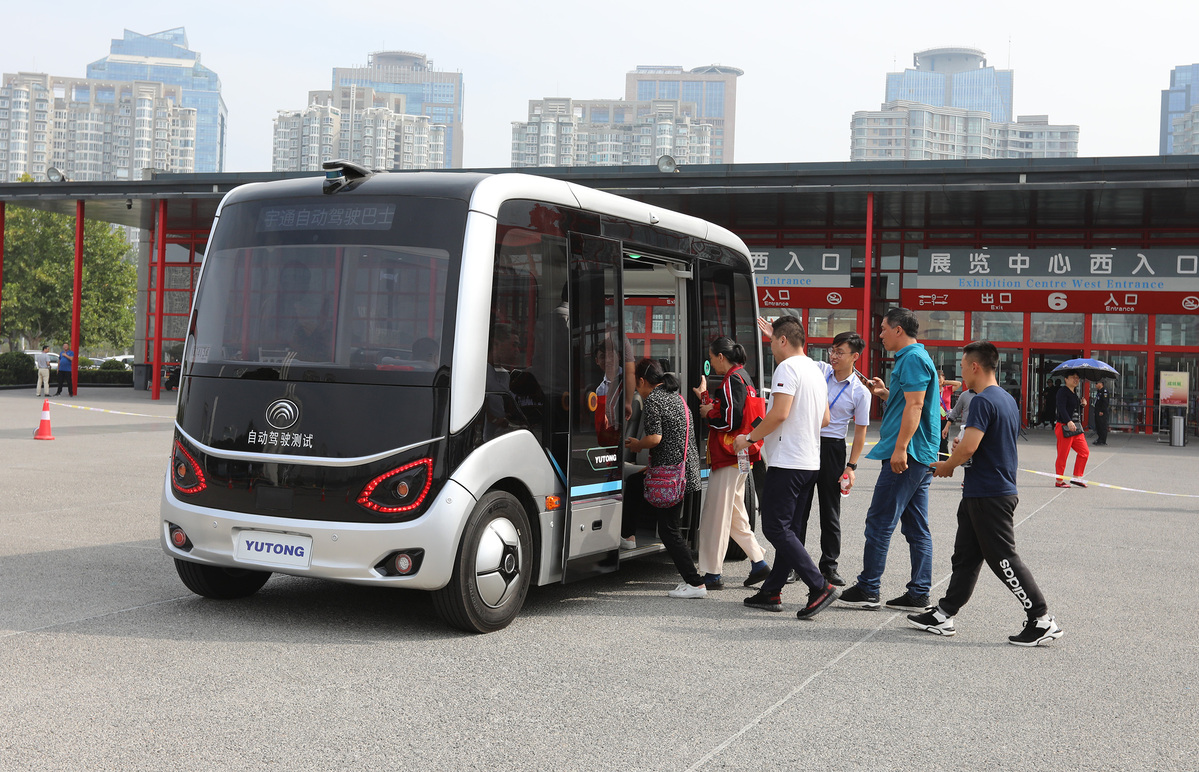Self-driving sector gains momentum

5G tech, government's guidance and support boost industry's development
BEIJING-From carrying out test runs on closed roads to transporting passengers in cities, China's self-driving industry took a big step forward in 2019, attracting more foreign manufacturers.
The Chinese government's guidance and support have promoted the rapid development of this sector, said Gao Qianqian, an official from the China Association of Automobile Manufacturers.
Self-driving cars have to maintain stable connections with base stations to enable monitoring of their operational status, which requires a large amount of data exchange. With the 5G network, the delay is within a few tens of milliseconds, said Han Xu, CEO of China's smart mobility company WeRide.
As the basis for autonomous driving, China's 5G technology, with the advantages of large bandwidth, ultralow delay and large-scale connection, has accelerated its development.
A self-driving vehicle running at 100 kilometers per hour starts braking at least 1.4 meters after recognizing obstacles in 4G networks, while the 5G network can shorten the distance to about 3 centimeters.
The support of the upgraded network has facilitated the autonomous vehicles shifting from road tests to passenger-carrying tests.
In November, a fleet of self-driving vehicles equipped with Baidu Apollo autonomous driving systems developed by Chinese tech giant Baidu, carrying passengers ran on test roads with a total length of 114 kilometers and completed a diverse range of scenarios including cruising and changing lanes.
At the end of last year, WeRide launched a trial run of autonomous taxis, named Robotaxi, in a 144-square kilometer area of Guangzhou, capital of South China's Guangdong province. Passengers can order a taxi via its app and experience a driverless journey.
"As the basis of the technological advantages, our country has numerous talents, especially in fields including artificial intelligence, big data and cloud computing," Gao said.
China has been engaged in the construction of self-driving infrastructure to enhance safety and efficiency in test rides.
Beijing added a new area of 40 square kilometers for testing selfdriving cars carrying passengers on Dec 30. The city has opened 151 roads with a distance of about 503.68 kilometers for autonomous driving, ranking first in the country.
Last May, Beijing's tech hub Haidian district began constructing a 100-square-kilometer demonstration area for self-driving vehicles.
The area will be a place to develop smart connected cars and smart transportation featuring multiple scenarios, cloud management, simulated tests and data support. Companies and researchers would be able to test commuting, logistics and delivery technologies as well as those related to road cleaning, said Dai Binbin, head of the Haidian district government.
In Southwest China's Chongqing municipality, a demonstration area for 5G-based autonomous driving, including a closed test area covering more than 470,000 square meters, was launched in August.
Besides the construction of infrastructure, cities including Beijing, Shanghai and Chongqing issued policies and license plates for autonomous vehicles to assist in the research and development of the self-driving industry.
In September, several tech companies including Baidu obtained commercial licenses for self-driving vehicles issued by Wuhan's transportation department, followed by Beijing, which issued 40 license plates for Baidu's autonomous cars carrying passengers later in December 2019.

